Postdoctoral research on molecular and physiological basis of circadian-metabolic cross-talk
Postdoctoral positions are available in the laboratory of Dr. Shogo Sato in the Department of Biology, Texas A&M University (https://www.bio.tamu.edu/faculty-page-shogo-sato/). Our lab chases answers for how the biological circadian system programs metabolic and epigenetic functions, and brings the mounting evidence up to the translational and practical levels. We ultimately aim to develop novel approaches to promote health and reverse metabolic diseases, cancer, and aging through metabolic and epigenetic activation of the circadian clock functions.
During the early stage of our lab, we will intensively focus on;
1) determining how the circadian clocks are implicated in the functions of different types of stem cells
2) identifying exercise-related metabolites that entrain the circadian clock and metabolic rhythms
3) developing an in vivo targeting clock gene activation system
[Research keywords]
Circadian biology; Exercise biology; Stem cell biology; Biological clocks; Metabolism; Epigenetics; Metabolic diseases; Aging; Cancer; Epigenetic therapy
For more information, please see the following publications;
- Sato, S.*, Hishida, T.*, Kinouchi, K.*, Hatanaka, F., Li, Y., Nguyen, Q., Chen, Y., Wang, P.H., Kessenbrock, K., Li, W., Belmonte, J.C.I., Sassone-Corsi, P. (under review) The circadian clock CRY1 regulates pluripotent stem cell identity. *contributed equally.
- Sato, S.*, Dyar, K.*, Treebak, J.T.*, Jepsen, S.L., Ehrlich, A.M, Ashcroft, S.P., Trost, K., Kunzke, T., Prade, V.M., Small, L., Basse, A.L., Schönke, M., Chen, S., Samad, M., Baldi, P., Barres, R., Walch, A., Moritz, T., Holst, J.J., Lutter, D., Zierath, J.R., Sassone-Corsi, P. (2022) Atlas of exercise metabolism reveals time-dependent signatures of metabolic homeostasis. Cell Metab 34, 329-345 *contributed equally.
- Sato, S., Basse, A.L., Schönke, M., Chen, S., Samad, M., Altıntaş, A., Laker, R.C., Dalbram, E., Barrès, R., Baldi, P., Treebak, J.T., Zierath, J.R., Sassone-Corsi, P. (2019) Time of exercise specifies the impact of muscle metabolic pathways and systemic energy homeostasis. Cell Metab 30, 92-110.
- Sato, S.*, Parr, E.B.*, Devlin, B.L., Hawley, J.A., Sassone-Corsi, P. (2018) Human Metabolomics reveal daily variations under nutritional challenges specific to serum and skeletal muscle. Mol Metab 16, 1-11. *contributed equally.
- Sato, S.*, Solanas, G.*, Peixoto, F.O.*, Bee, L., Symeonidi, A., Schmidt, M.S., Brenner, C., Masri, S., Benitah, S.A., Sassone-Corsi, P. (2017) Circadian reprogramming in the liver identifies metabolic pathways of aging. Cell 170, 1-12. *contributed equally.
[Qualification]
- Applicants should hold a Ph.D. (or M.D./Ph.D., M.D.)
- Team-players, and motivated, enthusiastic and cooperative talents
- Applicants with any research backgrounds are welcome but should be interested in circadian biological research
- Experience in biochemical, molecular biological analyses using small rodents and cell culture is preferred
[Salary, Benefits]
- Salary (stipend) will be paid according to TAMU and NIH guidelines (see https://grants.nih.gov/grants/guide/notice-files/NOT-OD-21-049.html).
- Benefits including health insurance will be covered according to TAMU guideline.
Please send 1) a cover letter and CV including names and contact information of two/three references, and 2) a summary of previous (current) research and future research interest (1-2 pages) to Shogo Sato (shogo.sato@bio.tamu.edu).
Please feel free to contact me and ask any questions.
Shogo Sato, Ph.D.
Assistant Professor
Center for Biological Clocks Research, Department of Biology
Texas A&M University
shogo.sato@bio.tamu.edu
